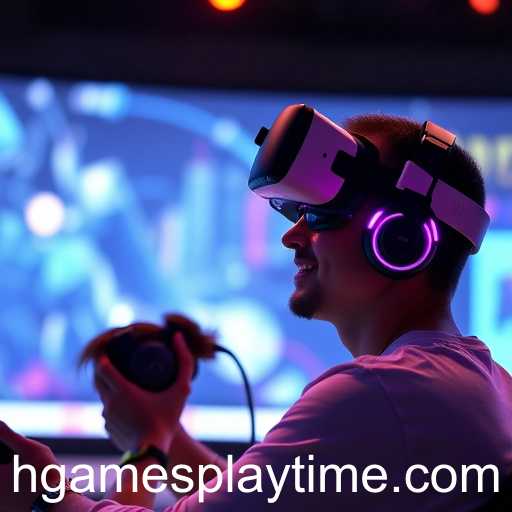The world of gaming has undergone a remarkable transformation in recent years, with 'games playtime' becoming a core topic of discussion. As we find ourselves in 2025, this concept encompasses not just the hours spent enjoying video games, but also the broader impact on society and individual lifestyles.
In recent developments, gaming companies are innovating at a rapid pace. Virtual reality (VR) and augmented reality (AR) have revolutionized user experiences, making playtime more immersive than ever. The lines between reality and virtual spaces continue to blur, offering players unprecedented engagement levels. In particular, the widespread adoption of VR headsets has seen game worlds becoming parallel realities where players spend significant time.
Meanwhile, the rise of game streaming platforms like XStream has allowed gamers to stream or watch playthroughs live. This has fundamentally altered how games are played and experienced. It's not uncommon now for gamers to have playtime extend beyond individual gameplay to include extensive community interactions and discussions online.
Moreover, the societal impact cannot be ignored. With many games incorporating elements of learning and social development, educators and psychologists are examining how playtime contributes to cognitive and social skills. This marks a shift from the traditionally negative perceptions of gaming to a more nuanced understanding of its benefits.
The dynamics of playtime have also been affected by societal changes. Remote work and the flexibility it offers has allowed people more leisure for gaming, significantly impacting the average hours spent on games. The year 2025 has seen a notable shift in how people prioritize their leisure activities, with gaming becoming an integral part of everyday life.
Reports indicate that the average gaming session has become longer, driven by narrative-rich games that captivate players' attention for extended periods. This change has prompted game developers to rethink game designs, focusing more on content that engages players meaningfully over time, as opposed to quick, repetitive tasks.
As we look ahead, it is clear that playtime will continue to evolve with technological advancements and societal shifts. The gaming industry's response to these changes defines not just entertainment, but future avenues for educational and communal growth.








